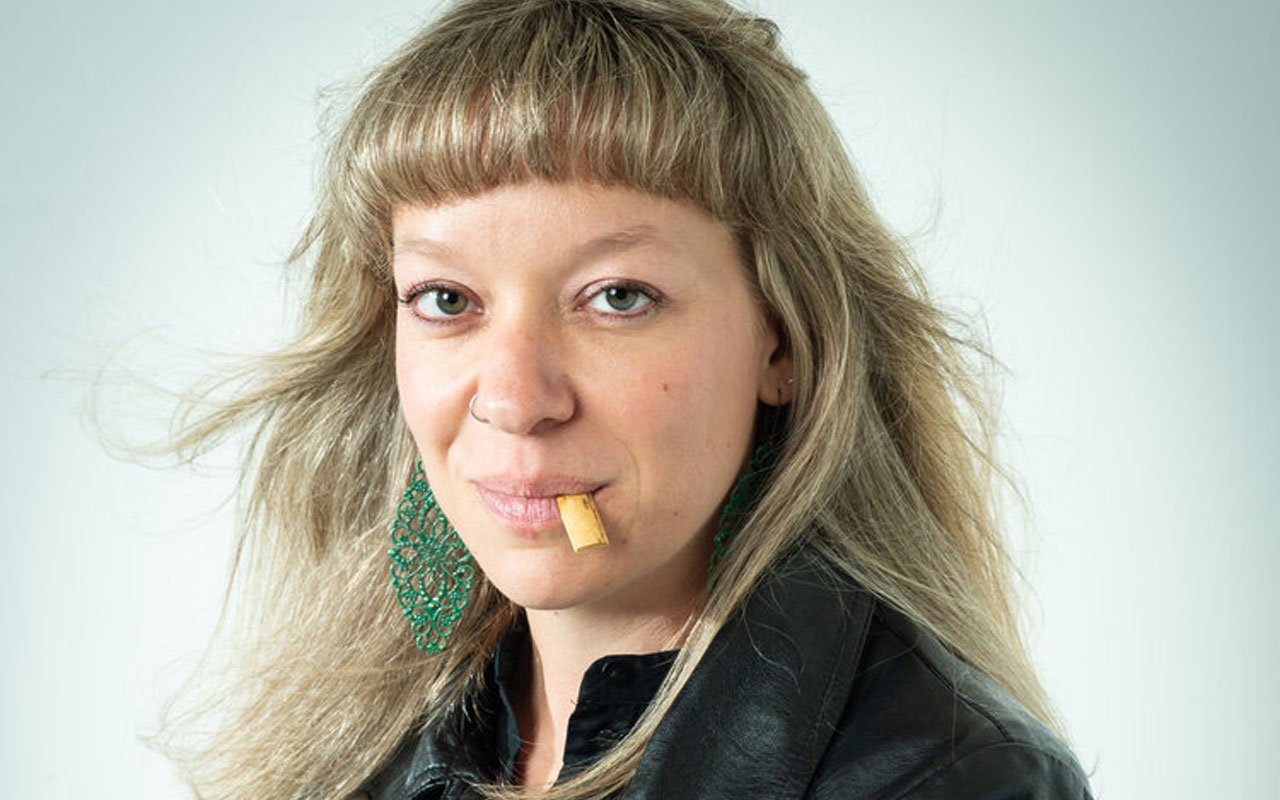
Kate Olson photo courtesy of the artist
Since Earshot last caught up with Kate Olson in 2019, the improvisational saxophonist has kept herself quite busy over the last few years, even during the quarantine. In February, she taught jazz history for Seattle JazzED in grade and middle schools in the Seattle area for Black History Month. She stresses in her classes that jazz originated in New Orleans, out of the African diaspora, and kids are introduced to each instrument, encouraged to ask questions, and are able to play on their own under the guidance of an instructor.
She also recruits for the JazzED Foundation summer camps, which inspire and interest kids in playing jazz; the camp offers a sliding scale (including free) that can suit any family’s needs. One day per week, Olson teaches woodwinds at The Seattle Academy and for the past three years, she’s been faculty at Pacific Lutheran University teaching jazz sax and improvisation on guitar and trumpet in private lessons.
And even at the height of COVID, Olson’s life was still centered in music. Her fiancé Gordon Brown started the streaming company, Loudswell. “It was ground zero of helping musicians in the Seattle scene to create livestreams and monetize those streams. He did an amazing job of helping musicians get paid during the pandemic and that was something [tech] I had no experience in.”
Olson also found surprising success in doing solo livestreams. “The situations as a solo artist I’m asked to perform are generally not high paying gigs. There was an audience to support musicians that was outside the expected.”
Like many others, Olson pivoted into online teaching:
I was on Zoom up to 35 hours per week. It was too much. I got burnt and struggled to find enjoyment in teaching…. I went in the other direction of bulking up my teaching studio and saying ‘yes’ to every opportunity that was thrown at me: teaching protest songs on ukelele to 5th graders to one-off lessons to teaching students I had never met in person…but my eyes glazed over and I was wrecked spending so much time staring at my computer. I still do some Zoom teaching, but this year in particular I’ve been able to set boundaries….
I struggle with saying ‘no’ a lot; I can’t speak for other women in the community, but in my own mental health work, people-pleasing is an issue for me because I don’t want to create conflict, so I have to work to retain those boundaries. Unlearning ‘yes’ is difficult as a self-employed artist…even if they’re [opportunities] far away or don’t pay or don’t lead to anything else.
Though she’s still riding the wave of coming out of the pandemic, Olson hopes to release original music this year, and her ensemble was nominated for a Golden Ear Award. She is also writing a book: a conceptual manual on how to create a compelling improvised solo. She specializes in “non-genre specific improvisation” and has traveled around the world playing her original music.
When reflecting on the disparity in representation, Olson shared with Earshot:
History is written by the victors; it’s not important to people to give credit where credit is due, and that’s what we’re trying to remedy. Similarly, the history of women in music is diminished. They weren’t covered in music history and there wasn’t the same kind of billing for women performers, especially in the earlier part of the 20th century.
The tax that you pay for not being part of the dominant culture is that you never know if it’s because you’re black or female or anything that you’re being treated a certain way. There’s always that question: is that person heckling me because they think I’m doing something wrong or because they don’t expect me to have the knowledge I have?
You can catch Olson playing knowledgeably in her improv ensemble, Battlestar Kalakala, which performs at the Sea Monster in Wallingford every month.